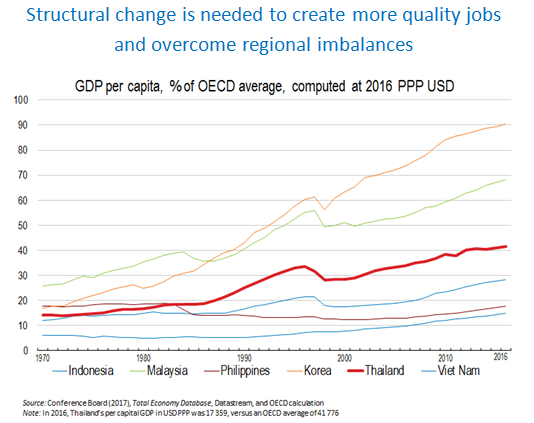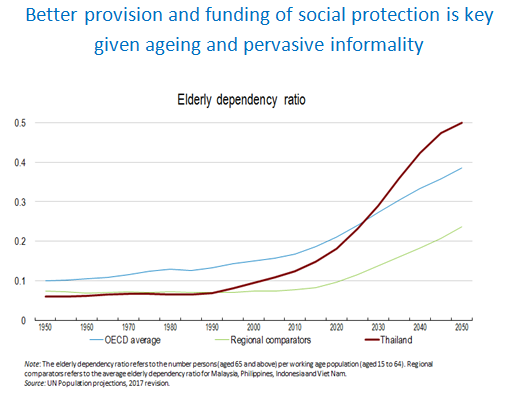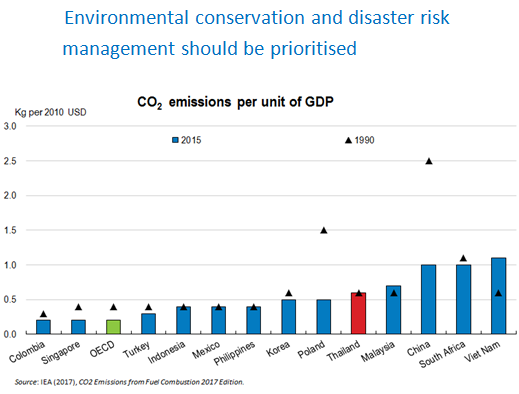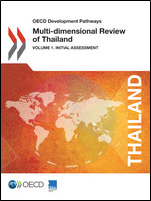Thailand
Multi-dimensional Review of Thailand 2018
|
Thailand’s achievements and challenges as it aspires to become an inclusive high-income country, Blog Post
Download the presentation (PDF)
The finalised full report is available here
|
 |
Since 1970, Thailand’s GDP growth per capita has averaged 4.2% per year in purchasing power parity terms. In 2016, income per head stood at 42% of the OECD average. Nevertheless, faster growth is needed for Thailand to reach its goal of high-income status by 2036. This calls for structural reforms to boost economic potential and inclusiveness, by improving education and skills training in all regions, fostering innovation, facilitating domestic competition, reducing cross-border barriers and accelerating |
 |
Extreme poverty has largely been eliminated but disparities remain. The fragmented social security system does not adequately protect the large informal and precariously employed labour force, and many elderly are at risk of poverty. Better social security and pension coverage is essential for inclusive growth. While public finances are presently in robust shape, gradual revenue increases will be called for to fund rising pension and healthcare outlays amid a rapidly ageing population and a declining workforce. Inducing greater formal labour market participation will be key to expand social protection and boost tax revenue. |
 |
Economic development has exerted a heavy environmental toll. Despite recent improvements, notably with reforestation, Thailand has to further enhance the management of its natural resources to safeguard sustainable development. Rapid |
 |
For further information, please contact the South East Asia desk, Economics Department. The Initial Assessment report of the Multi-dimensional Review of Thailand was prepared by Hidekatsu Asada, Adam Bogiatzis, Abu Zeid Mohd Arif, Mohamed Rizwan Habeeb Rahuman (OECD Economics Department), Martha Baxter and Andrea Colombo (OECD Development Centre), Lara Fleischer and Koffi Zougbédé (OECD Statistics Directorate) under the supervision of Vincent Koen and Jan Rieländer. Secretarial assistance was provided by Myriam Andrieux, Mercedes Burgos and Sisse Nielsen. |
Related Documents